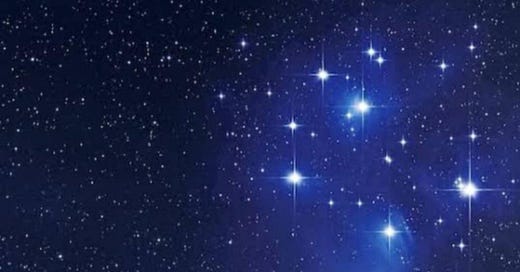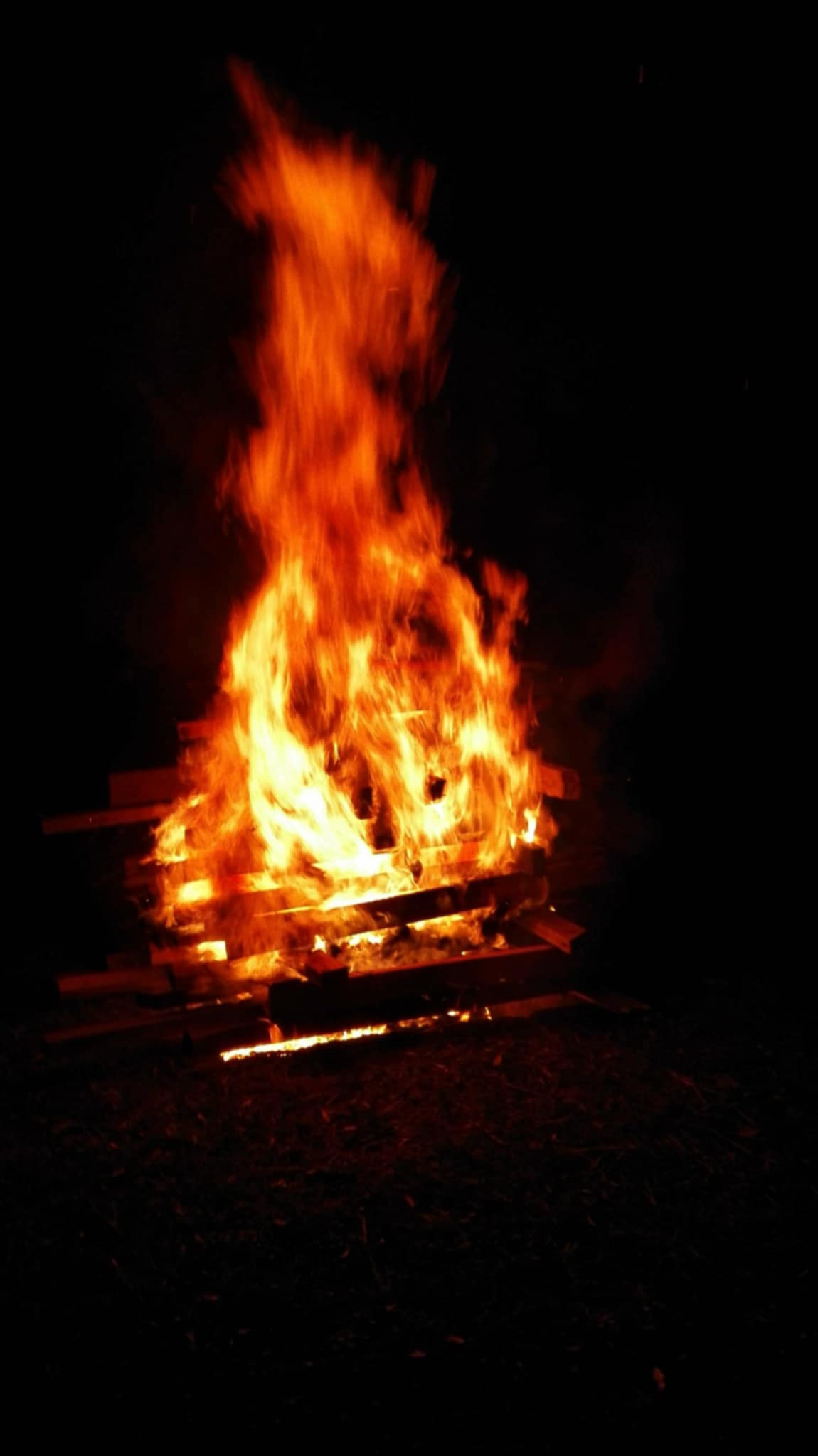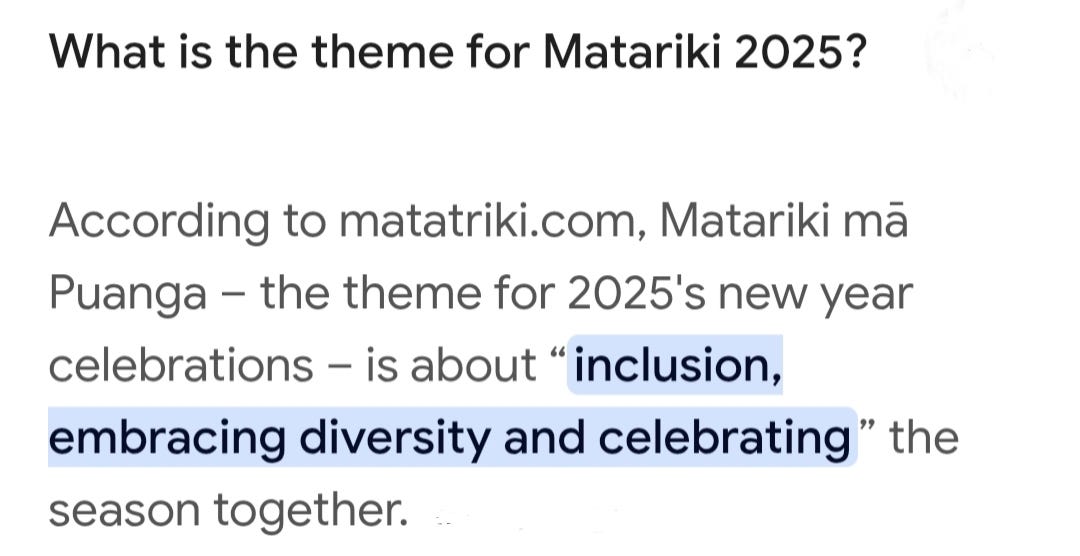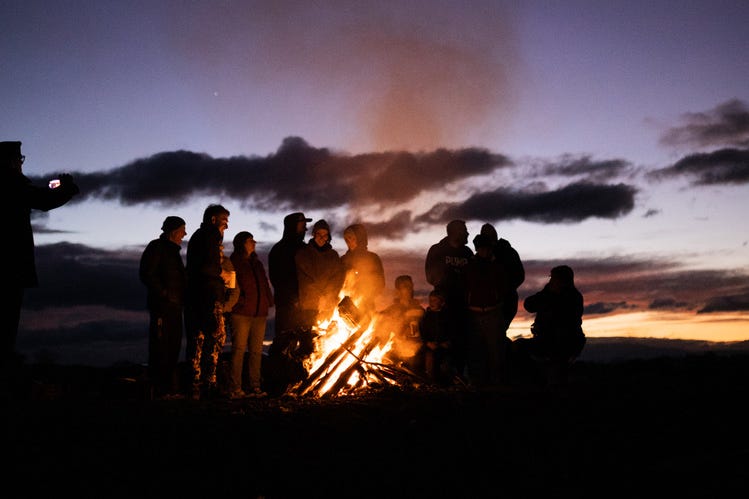When we talk about Matariki, always first and foremost in my mind are my parents and my ancestors. The times they lived in and through. Whenever we talk about the past it is against the backdrop of the last two centuries. Hard times, and times of bounty. Times of cycles and change. There has been much change over the last two centuries. From the pre-industrial revolution era to the 21st Century.
As almost all natives are followers of animism, it is easy for me to see why and how these rituals were born, and to relate. What they mean, and the deep respect they were practiced with. They carry deep spiritual meanings. From offering up our recently departed to giving thanks and then onto ringing in a new year; a new cycle. We believe the earth and indeed the entire universe is made of many realms and deities.
Similar rituals would have taken place all over the world. At different times and under different names. We know that they did, in fact. Remnants of ancient human spiritual and practical traditions surrounding the constellations, the changing of the seasons and new beginnings are still practiced today throughout the world, including in Europe and Great Britain.
That does not mean that anybody can take Matariki for their own. It means they can respect our traditions as we respect theirs, and appreciate them. It does not mean that they are Māori now, or that they really understand what Matariki has meant historically and still means to us.
Many of our cultural practices and rituals were banned, and we permitted others to die; often due to the practical considerations of the time, such as war or urbanisation. As the years passed, Mātāriki fell into Māurinoho, and has only been revived to Māurioho over the last decade. Māurioho will lead to all of us transitioning into the state of Māuriora.
Sadly, like everything of cultural value to us in recent years, before we have barely had a chance even to share it with our mokopuna, Matariki has been taken over both by fame-chasing academics who seem to believe that they're better authorities on matters Māori than our elders because they're university and media-approved - and corporations salivating to align with this barely-tapped new branding opportunity.
Matariki is cool now?! No kidding! How can we make it sell cars and electronics and toddler toys?! Politicians are in on it too; they'll be popping up like weeds wearing Matariki merch at events around the country, and talking about new beginnings and cultural sensitivity - but what they really mean is “Vote for me, for any reason”.
Let's compare and contrast the themes and principles of Matariki that have been passed down to us through the generations, with those suggested by the modern Matariki corporate event organisers this year.
‘Matariki Hunganui’ - Remembrance: Honouring those we have lost during the last Matariki cycle.
This is the spiritual practice of releasing and offering our loved ones who have died in the last Matariki cycle to the named nine stars of Matariki. We offer our dead up with sorrow, gratitude and love. We lift them up to become stars by speaking their names. There are a lot of ‘firsts’ in the first year of a loved whanau member dying. From first birthdays to first steps and teeth for the moko. We gather together in the early hours of the morning before Rā makes his appearance. We light fires. Back in the days’ fire was a way to signal to others from other Hāpu what was happening in your rōhe.
There is hot kai. Whanau and whanaunga korero around a blazing ahi. Tamariki running around. Hot cocoa, milo or hot chocolate for the tamariki. Everyone is wrapped up warm for winter. Gumboots, swannies and pōtai abound. Our kuia and kaumatua are given blankets and seated. Kai is prepared. Our elders and tamariki are always served kai first. Some Hapū prepare a plate for their departed and set it aside, while others celebrate Puanga as well as - or even instead of - primarily Matariki. As we keep trying to tell everyone, we are not a homogeneous group!
The steam-smoke off the kai when opened is the new year’s offering of gratitude and of sorrow and feelings in between. There are waiata and karakia. Acknowledging we are safe in the cycles of life. They will always turn year in and year out. We wish upon a star.
Matariki Ahunga Nui - Celebrating the present: Gathering together to give thanks for what we have.
We acknowledge the bounty we have. Crops have been harvested. They are preserved and stored. We spent the last year working; always moving forward to be better; to do better for all - especially for our whanau. The whanau daily rituals and habits that bind us together. A year of sports and work and gatherings and learning and giving to the community. There is much to be grateful for, especially after hard years. Papatuanuku can lash out and show her displeasure. Crops can be laid to waste after one of her tantrums.
Matariki Manako Nui - Looking to the future: Looking forward to the promise of a new year.
We give thanks for all that has brought us to this day. We look forward with anticipation to another cycle of beginnings and endings. Continued learnings and gifts made to others. Dreams of the bounty that may grace us during this new Matariki cycle. Karakia for the best year ahead, knowing the worst could also appear in the next cycle.
These are the true themes and meanings of Matariki, that I absorbed from my whānau and whanaunga growing up. In contrast, the corporate, academic and political class of today, with their eyes on cash and notoriety, would like this year’s theme, in 2025, to be: ‘Celebrating and Embracing Diversity and Inclusion’.
We all know what this means now. It means this year’s Matariki is the DEI Matariki.
‘Inclusion’ represents wāhine being erased in favour of men who pretend to be women, and our tamariki being told they are born in the wrong body and sterilised with off-label cancer drugs called ‘puberty blockers’, and ideally, progressing to bilateral mastectomies, phalloplasties and orchiectomies. In simple language, this is breast removal, or peeling the skin from a girl’s forearm to sew it onto her pubis, and turning a boy’s penis inside out and cutting off his testicles. This is what ‘inclusion’ means for children, and the women who stand up and say no are being evicted from women-only spaces to ‘include’ men.
‘Diversity’ means that anyone whose behaviour you find unacceptable in front of children or really anywhere that isn’t their own home is in the right, and you are in the wrong for noticing the inappropriate behaviour. It means that if you see a man berating his wife and dragging her away from the celebrations, but she is wearing a burkha or a niqab, you must not do anything or say anything, because it’s all about diversity, and everyone and everything is valid. It’s not being cruel to your wife that is wrong - it’s you noticing. How is this related to Matariki? In short, it isn’t. It is a perversion of Matariki for an ideological end.
Diversity and inclusion mean that your sexual and racial identity must be disclosed, and either worshipped or apologised for, no matter what. Do you like to wear nappies in public? Do you have a fetish for pretending you’re an animal and wear a tail buttplug, or enjoy sharing the details of your scat play and golden showers? Are you riddled with white guilt and like to cosplay as Māori to show how spiritual and natural and not like the other colonisers you are? Perhaps you’re a man who likes to pretend you're a woman and get breast implants to wave around on the street? Do you think women are hateful bigots and Nazis for believing sex is real and that it matters? Then this is the Matariki for you!
‘Embracing’ diversity means that your sexuality and your race or racial affiliations and political opinions should be on display and preferably as open as your imagination will allow - anything less is considered a sign of repression and bigotry - as long as you have the ‘right’ opinion. If you agree that all fetishes and leftist political causes are tika and pono and everything else is wrong, well, then this fake Matariki is for you.
Diversity and Inclusion only work one way. There are certain themes and groups that are acceptable and others that are not acceptable. Are you a Māori victim and need rescuing because of evil Pakeha and colonisation? Are you a Pakeha who believes Māori are victims of your wicked ways, and that the way for you to rescue us and do penance is to have a day off and buy a $79 t-shirt with Stan Walker’s face and ‘Matariki 2025’ on it? Do you think we should abolish prisons and that paedophiles are just misunderstood, poor things? Do you think our tamariki can be born in the wrong body and that their bodies should be irreversibly and savagely experimented upon to see if it can be turned into the ‘right’ body? Do you fly the Ukraine and Palestine flags in your bio and automatically hate Trump, Elon and Putin because all your friends do? Do you believe in forced vaccination? Then Ngau Mai, Haere Mai. You are included here. If, on the other hand, you do not agree or unquestioningly support all of these buzzwords, phrases and the latest fashionable cause, then get out. You're not welcome. This is 21st century ‘Inclusion’. It has nothing to do with Matariki - or inclusion. Diversity of thought and opinion are not tolerated, in this upside-down version of Matariki.
It may seem harsh to say these things, but they are true. Our celebration has been co-opted by people who care nothing for what it really means, and have no reverence for our departed or our culture. If the truth is too confronting, and you would prefer to pretend that everything is really okay - this new, shiny, sanitised, packaged and for sale Matariki is fine, then there’s nothing more I can say that will stir you. My karakia, for the last six years, and this year as well, is that ‘gender’ ideology will end, and the harm to our tamariki; the medical and corporate eugenics being practiced on our next generation - sterilising them - will finally stop.
My knowledge, which I received from my parents and my whanau, tells me that this is the time of year for promises to try harder and be better, and maybe try new things. Be the best one can be.
Imagine the gift to all our communities if we were to offer up the best selves we could be. The criminal behaviour would halve. The violence would cease. The emotional and physical harm would lessen in personal everyday ways.
So for me I will celebrate Matariki with the hā of my being, because Mātariki is about whanau. Family.
Every local and community celebration around the motu will have things prepared with the Kuia, Kaumatua and tamariki in mind. Individual whānau will gather and prepare; the kōhanga, the marae, the kura and wānanga will all have prepared as I have described - but the corporate events won’t be like this.
They are no more than an excuse for a party for disconnected adults. There will be plastic seating, OSH regulations to follow, bright lights, flags, food and trinket stalls from all around the world - a million different opportunities to open your wallet - but Mātariki is not about money and merchandise.
It is about whānau. Past and present. Let’s all celebrate this aspect, and be joyful that in this moment we have precious time with those that matter to us. This year and next, let’s make our own kai, with our whānau, and share it with others, and celebrate being together as another year turns. Let’s remember the true meanings, and rise early, and gather your whānau for a cooked kai together at dawn. When whānau are in a state of Māuriora, it ricochets out into the community. This is what will stop the violence and unhappiness, not DEI. This is what will work; rituals with meanings that benefit whānau and bring us together for food and time spent and memories made.
This is the foundation of healthy communities.
Di Landy, Matariki 2025.









Very powerful commentary, Di, on a meaningful celebration for Māori being diluted and disrupted by marketing and corporatisation.
A lovely well written piece. Before I even knew about Matariki and to find out it will be a public holiday , I had never heard my Māori colleagues ever talk about it. My brother in law never mentioned it once, my school friends never mentioned it. Therefore I assumed, it was only celebrated by a few who wanted to hold onto traditions. However fast forward and we now have Chch lit up for the weekend, Tekapo is booming this weekend with all the star gazers, the list goes on. At least there is one saving grace, it’s not a big excuse to get totally tipped up like New Years celebrations!!! You’re right, it is now commercially viable to promote Tamariki just like the religious holidays Christian’s celebrate throughout our liturgical church year. It is unfortunate that we can’t just celebrate an event without selling something to go along with it. DEI is a wrought, another way to make money and it allows grifters to keep on grifting. Happy Matariki everyone, the sun is shining today and tonight, I will look up and hopefully see the stars they are beautiful and fascinating to me, aren’t we lucky we can see the stars and enjoy beautiful clear skies to pause and wonder.